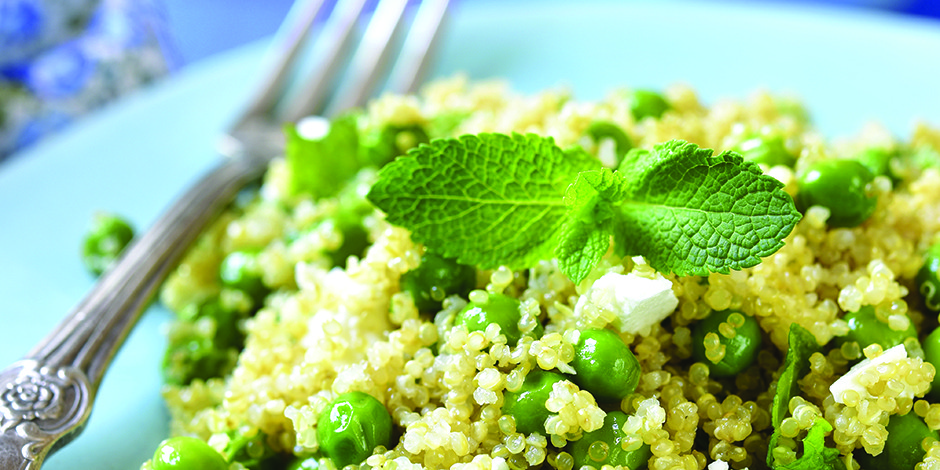Meat and dairy have long held the top spot as the nation’s go-to protein sources. But roughly half of Americans now believe plants are the best way to get protein, according to a report by consumer research firm Packaged Facts.
Why the shift? Common reasons include environmental benefits and lower costs of plant proteins, as well as the desire to avoid the antibiotics, fat and calories associated with animal protein sources. One downside of getting your protein from plants, however, is that they contain far less protein per serving than do animal sources. That’s why we’re excited about these protein-heavy plant-based options.
Quinoa
There are 8 grams of protein in every cup of cooked quinoa, but what makes this source extra attractive is that it’s one of the rare plants that provides complete proteins, meaning that all nine of the essential amino acids (the building blocks of protein) are represented. Other benefits: One cup provides about 20 percent of your daily fiber and folate requirements, plus nearly 60 percent of your manganese.
Cocoa
Unsweetened cocoa powder delivers 17 grams of protein per cup (that’s a little over 1 gram per tablespoon), while one square of baking chocolate provides 4 grams. It’s also high in fiber and minerals such as magnesium, copper and manganese.
Peas
Peas are legumes, all of which are relatively high in protein. One cup of green peas offers 8 grams of protein—about the same as a cup
of milk, along with nearly a third of your daily fiber needs and 97 percent of your vitamin C.
Pumpkin Seeds
All nuts and seeds are protein-rich, including pumpkin seeds, with up to 35 grams of protein per cup (8.5 grams per ounce). For the highest protein ratio, choose pumpkin seed kernels, also known as pepitas. Pumpkin seeds also serve up hefty helpings of vitamin K and key minerals like iron.
Oatmeal
One cup of cooked oatmeal yields 6 grams of protein, about the same as in one egg, making it an excellent breakfast choice. In addition, you’ll get a high dose of soluble fiber, as well as manganese, magnesium, phosphorous and some B vitamins.
How Much Protein Do I Need?
Aim to get 10-35 percent of your daily calories from protein — about 56 grams per day for adult males and 46 grams per day for adult females. Source: Institute of Medicine

